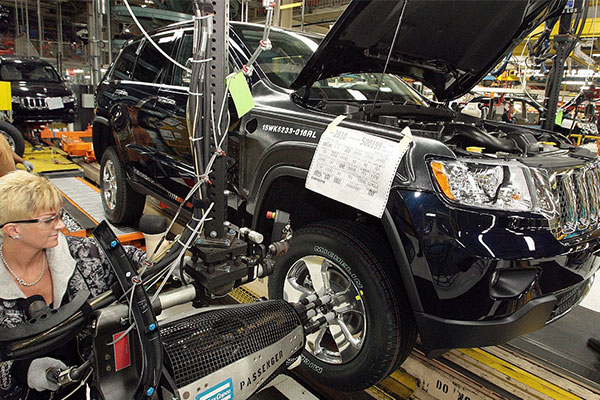Since February 2023, the United States has significantly increased its attention to China's auto industry. The U.S. Department of Commerce has listed China's connected cars as a policy priority and plans to take corresponding measures. The reasons behind this decision are complex and diverse, involving the importance of the U.S. auto industry, electoral political considerations, and the rapid rise of China's auto industry.

The Strategic Position of the American Automotive Industry
The automotive industry is not only the cornerstone of U.S. manufacturing, it is also a key driver of its economic growth. The U.S. automotive industry directly creates more than 1 million jobs and invests tens of billions of dollars in research and development. The impact of this industry far exceeds its direct economic contribution, with a significant employment multiplier effect and a strong linkage effect with a number of related industries.
In addition, with the transformation of the global automotive industry, especially the development of autonomous driving and electric vehicle technologies, the U.S. automotive industry faces unprecedented challenges and opportunities. The U.S. government is committed to maintaining its competitiveness in the global automotive industry, focusing not only on traditional automobile manufacturing, but also on investment and development of emerging technologies.
The impact of electoral politics
Another key factor in the US policy-making process is the upcoming election. The auto industry, auto unions, auto workers and their families are key voting groups, which makes the auto industry the focus of electoral politics. Especially in the "Rust Belt" region of the Midwest, the rise and fall of the auto industry is directly related to the local economic situation and people's lives, so it has become a core issue in political debates.
The rise of China’s auto industry
At the same time, the rapid development of Chinas automobile industry has also caused alarm in the United States. China has become the worlds largest auto market, but also the largest auto producer. Especially in the field of electric vehicles, China not only has a huge domestic demand market, but also made significant progress in technology and production capacity.
According to relevant data, China's automobile exports have grown rapidly and have surpassed Japan to become the world's largest automobile exporter. Moreover, China's electric vehicle exports have grown particularly rapidly, indicating that China's position in the global automobile industry is rapidly improving.
The U.S. response strategy
Facing the rise of China's auto industry, the United States has taken a series of measures to protect the interests of its auto industry. In addition to traditional trade protection measures, such as imposing high tariffs on Chinese cars, the United States also pays special attention to connected cars and autonomous driving technologies, fearing that the development of these technologies may allow Chinese cars to lead the United States in terms of intelligence.
In addition, the US government has also attempted to use laws and policies to restrict Chinese auto companies from entering the US market through third countries by bypassing trade barriers, especially targeting Chinese automakers that enter the US market through countries such as Mexico.
The US policy towards China's auto industry is not an isolated phenomenon, but part of its broader trade and industrial policy. Against the backdrop of intensified competition in the global auto industry, the US is trying to protect and strengthen its own auto industry through various means to cope with challenges from emerging markets such as China.
At the same time, electoral politics within the United States are also influencing the formulation of these policies. As the 2024 election approaches, the automotive industry and its related policies will continue to be the focus of domestic political debate in the United States. Ultimately, the US policy on China's automotive industry will be the result of multiple factors at home and abroad, and the development of these policies deserves continued attention.


 Follow customer service WeChat
Follow customer service WeChat